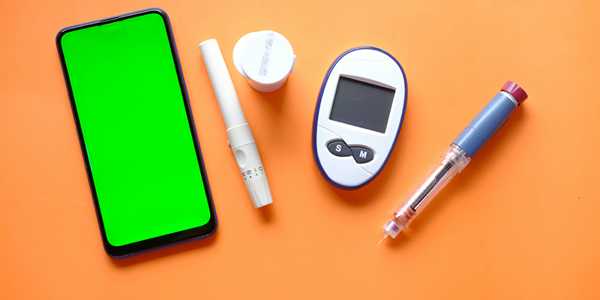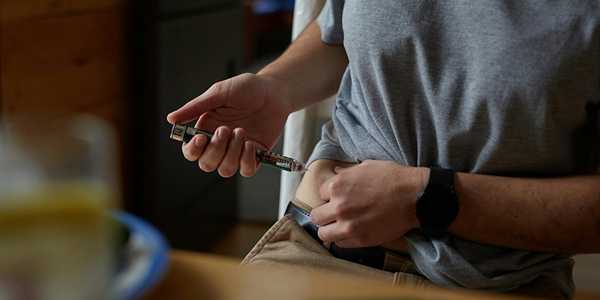Decoding Your Body's Signals: What Are 10 Warning Signs Of Diabetes
Have you ever felt like your body is trying to tell you something, but you can't quite figure out what it is? Maybe you're feeling a bit more tired than usual or constantly reaching for a glass of water. While these can be normal parts of life, they can also be subtle whispers from your body hinting at something more serious, like diabetes.
What Are the Early Signs of Diabetes?
These signs can appear in both Type 1 and Type 2 diabetes. While some may develop quickly, others creep in so slowly you might dismiss them. Here’s what to watch for:
- Frequent Urination (Polyuria)
Do you feel like you're living in the bathroom lately? Needing to go more often than usual, especially waking up multiple times at night, is a classic sign.
Why it happens: When you have diabetes, excess sugar (glucose) builds up in your blood. Your kidneys are forced to work overtime to filter and absorb this excess sugar. When they can't keep up, the sugar is flushed out into your urine, dragging fluids from your tissues along with it.
- Excessive Thirst (Polydipsia)
Feeling parched no matter how much water you drink? This goes hand-in-hand with frequent urination.
Why it happens: The more you urinate, the more dehydrated you become. Your body's natural response is to tell you to drink more to replace the lost fluids, creating a frustrating cycle of drinking and urinating.
- Unexplained Weight Loss
Losing weight without changing your diet or exercise routine might sound like a dream, but it can be a serious red flag.
Why it happens: When your body can't get energy from your food because of a lack of insulin or insulin resistance, it starts burning muscle and fat for fuel instead. This causes you to lose weight even if you're eating normally or more than usual.
- Increased Hunger (Polyphagia)
If you feel constantly hungry, even right after a meal, your body might be sending an S.O.S.
Why it happens: With diabetes, the glucose from your food isn't getting into your cells to be used for energy. Your body thinks it's starving and signals your brain that you need more food, leading to intense hunger.
- Blurred Vision
Are you finding it hard to focus? Is your vision a bit fuzzy? High blood sugar could be the culprit.
Why it happens: High glucose levels can pull fluid from the lenses of your eyes, affecting their ability to focus. The good news is that this is often reversible once blood sugar levels are stabilized. However, if left untreated, diabetes can lead to more severe and permanent eye damage.

- Slow-Healing Sores or Cuts
A small paper cut or blister that just won't go away is a common sign.
Why it happens: High blood sugar can affect your circulation and cause nerve damage, making it harder for your body to heal. It also weakens the immune system, making you more susceptible to infection in the wound.
- Frequent Infections
Are you battling frequent yeast infections, urinary tract infections (UTIs), or skin infections?
Why it happens: Bacteria and yeast thrive on sugar. High glucose levels in your body create a welcoming environment for these infections to grow.
- Numbness or Tingling in Hands and Feet
That "pins and needles" feeling, known as neuropathy, can start subtly in your fingers or toes.
Why it happens: Over time, high blood sugar can damage the nerves throughout your body, particularly those in your extremities. This nerve damage interferes with normal sensation.
- Fatigue and Irritability
Feeling constantly drained, exhausted, and maybe a little grumpy? This isn't just a "case of the Mondays."
Why it happens: When sugar stays in your bloodstream instead of entering your cells for energy, your body is literally deprived of fuel. This lack of energy can leave you feeling tired and irritable all the time.
- Darkened Skin in Certain Areas (Acanthosis Nigricans)
Have you noticed dark, velvety patches of skin in the creases of your body, like your neck, armpits, or groin? This is a common sign of insulin resistance.
Why it happens: High levels of insulin in the blood can stimulate skin cells to reproduce rapidly, leading to thicker, darker patches of skin.

Daily Tips to Help Prevent Diabetes
Seeing those signs might feel overwhelming, but here's the powerful truth: for Type 2 diabetes, prevention is largely within your control! Small, consistent lifestyle changes can make a massive difference.
Embrace a Balanced Diet: Focus on whole foods—fruits, vegetables, lean proteins, and whole grains. Try to limit processed foods, sugary drinks, and unhealthy fats. You don't have to be perfect, just consistent!
Get Moving: Aim for at least 150 minutes of moderate exercise per week. That could be a brisk 30-minute walk five days a week. Find an activity you enjoy, whether it's dancing, hiking, or cycling.
Maintain a Healthy Weight: Losing even a small amount of weight (5-7% of your body weight) can significantly reduce your risk of developing Type 2 diabetes.
Stay Hydrated with Water: Swap sugary sodas, juices, and sweetened teas for water. It keeps you hydrated without adding extra sugar and calories.
Manage Stress and Get Enough Sleep: Chronic stress and poor sleep can impact your hormones and blood sugar levels. Prioritize relaxation techniques and aim for 7-9 hours of quality sleep per night.
Know Your Numbers: Get regular check-ups with your doctor, especially if you have risk factors like a family history of diabetes, high blood pressure, or are overweight.
Frequently Asked Questions (FAQ)
Still have questions? You're not alone. Here are answers to a few common ones.
Q1: What's the difference between Type 1 and Type 2 diabetes?
A: Think of it like a key and a lock. In Type 1 diabetes, an autoimmune condition, your body doesn't produce insulin (the "key"). In Type 2 diabetes, your body either doesn't produce enough insulin or your cells become resistant to it (the "lock" is broken). Type 2 is far more common and is strongly linked to lifestyle.
Q2: If I have some of these symptoms, do I definitely have diabetes?
A: Not necessarily. Many of these symptoms can be caused by other conditions. However, they are significant warning signs that should not be ignored. The only way to know for sure is to see a doctor and get a simple blood test.
Q3: Can diabetes be cured?
A: There is currently no cure for Type 1 diabetes. However, Type 2 diabetes can sometimes be put into remission through significant lifestyle changes like diet, exercise, and weight loss. This means blood sugar levels return to normal without medication, but it requires ongoing effort to maintain.





